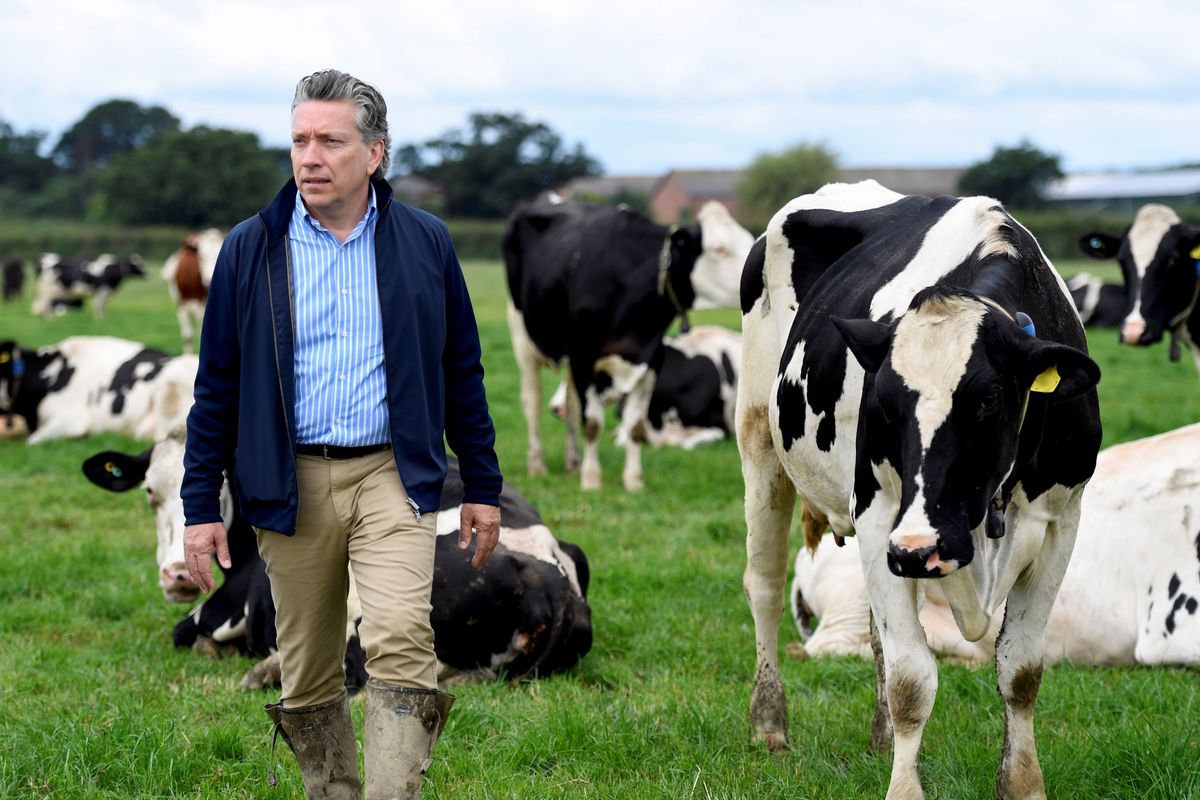Key Points
- Chronic labour shortages in farming and food manufacturing are worsening, with 84% of Arla’s surveyed farmers struggling to find skilled applicants; 6% have cut output and 13% may leave farming within a year.
- Arla warns shortages will translate into higher costs and reduced availability of dairy and other products on store shelves.
- Arla urges government, education, and industry collaboration to attract new talent, expand apprenticeships, and tackle misconceptions about careers in farming and food manufacturing.
Chronic labour shortages in farming and food manufacturing are putting UK food security at risk and could hit store shelves, Arla Foods has warned.
The UK’s biggest dairy company last week published findings from its fifth annual survey of 1,900 British farmers, showing that the struggle to recruit skilled workers has worsened since 2021. Around five in six farmers who tried to fill vacancies over the past year reported either very few qualified applicants or none at all.
The situation is pushing some producers to breaking point, with 6 per cent already cutting output and 13 per cent saying they will quit farming within the next 12 months if nothing changes.
“What we’re seeing, is the real impact of these workforce shortages on our farming industry, whether that’s in higher costs or lower milk production,” said Bas Padberg, Arla Foods UK managing director. “The effect of this is ultimately going to be seen in the price and availability of products on the supermarket shelves, affecting the millions of people that rely on dairy as a source of nutrition.”
The research highlights a sector struggling to renew itself. Almost half of farmers are aged over 55, while only 3 per cent are first-generation farmers. More than two-thirds come from families that have passed farms down for at least four generations, underlining how hard it is to bring in new blood.
Recruitment difficulties are not confined to farms. Arla said its sites take on average 116 days to recruit engineers, showing how widespread the problem is across food manufacturing.
Heather Davies, an Arla board representative, said more needs to be done to promote careers in food and farming to young people and career changers. “There is a clear disconnect between the education system and pathways into agriculture. Despite the incredible variety and fulfilment that a career in farming offers, we struggle to attract people to the industry.”
Arla is already expanding its own training pipeline with four apprenticeship schemes, industrial placements across farming and supply chains, and a bespoke apprenticeship at its Taw Valley mozzarella site. But the company says government backing is needed to create a real step change.
“We need to act quickly and we need practical steps that the industry, the education sector and government can take together to support more opportunities for inclusion and growth,” Padberg said.
The survey comes as the government prepares its forthcoming food strategy, which is expected to address workforce issues. Arla, which is investing £390m across its UK sites, said it remains committed to growth but warned that unless labour shortages are tackled, Britain’s ability to produce food securely is at risk.
Key statistics from the Arla survey:
- Nearly half of farmers (48.6 per cent) say that it is harder now to retain staff than it was prior to Brexit and the pandemic; this breaks down as 22.7 per cent saying it is somewhat harder now, and 25.9 per cent who believe it is much harder. Only 5 per cent say the situation has improved.
- The vast majority (83.7 per cent) of farmers who have had vacancies say that they have had very few or no applicants with the right skills to fill them.
- Half of farmers (48.1 per cent) say that shortages of people are driving up their costs, whilst a small but significant proportion (6.0 per cent) tell us they have been forced to cut the size of their herd, raising concerns about overall food production.
- Looking forward, there are real worries about the UK’s food security, with more than one-in-eight farmers (13.0 per cent) considering leaving dairying in the next 12 months if shortages of workers do not ease up.


